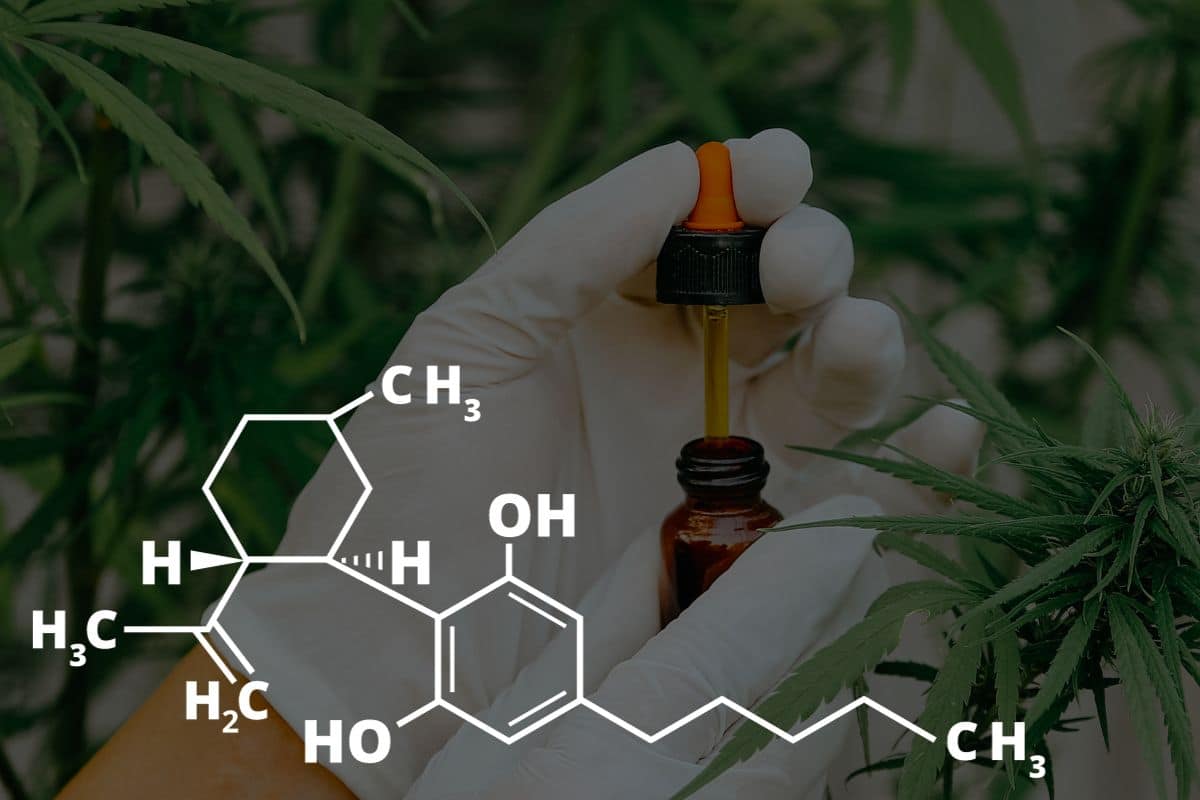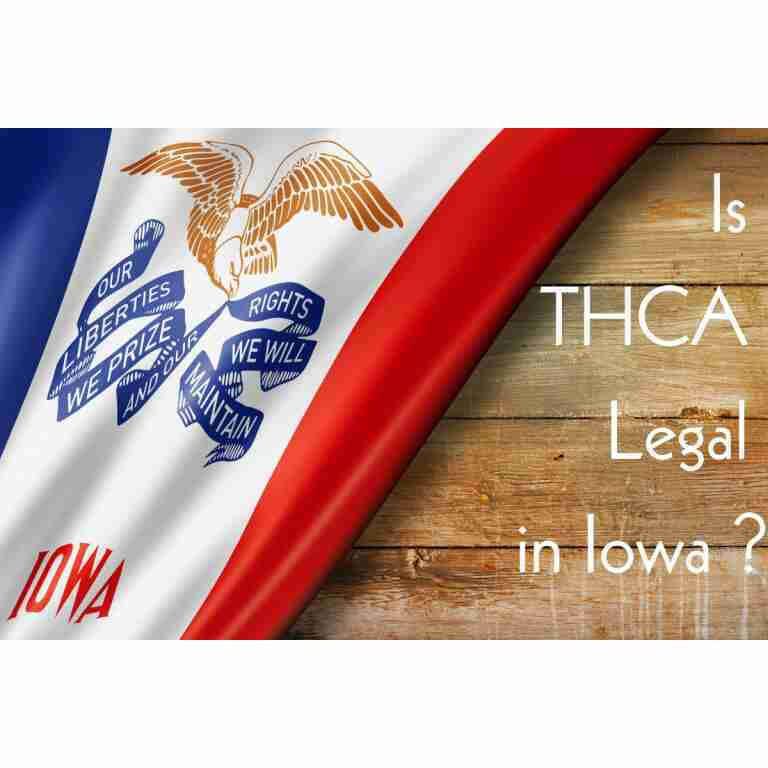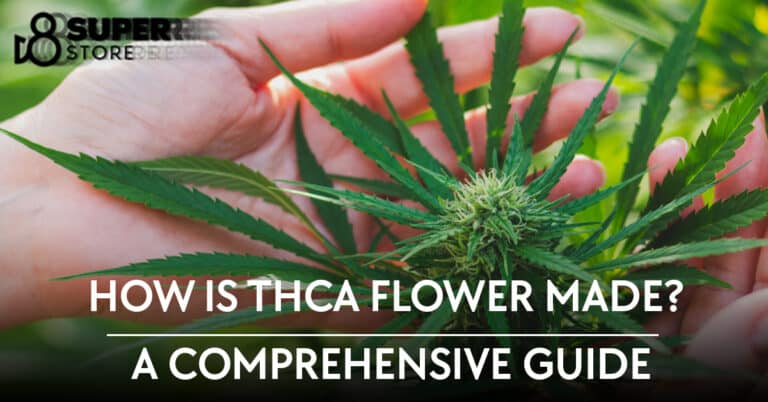Is THCa a Depressant? Understanding Its Effects on the Nervous System
Plunge into the world of cannabis, and you’ll meet THCa, picture it as the laid-back relative of THC. THC grabs all the attention with its ability to create a buzz, yet THCa grooves to a different rhythm. Eating it straight from the plant won’t whisk you away to seventh heaven since it doesn’t snuggle up to the brain’s CB1 receptors, those magic portals to bliss.
The effects of THCa are distinct from other cannabinoids found in the cannabis plant. Research into THCa is ongoing, but it’s important to note that it does not exhibit the depressant qualities typically associated with THC. In fact, there is some evidence suggesting potential therapeutic properties of THCa. This includes anti-inflammatory and neuroprotective effects, which may provide relief for certain medical conditions without the impairment associated with THC.
Table of contents
Understanding the difference between THCa and THC is essential, especially if you’re considering cannabis for medicinal purposes. Though they are closely related chemically, their effects on your body are significantly different. While THC might have depressant effects, leading to relaxation and sedation, THCa is being investigated for its potential benefits without altering your state of mind.
Understanding THCa

As you delve into the world of cannabis, it’s crucial to understand the non-psychoactive precursor to THC, Tetrahydrocannabinolic Acid (THCa). Its transformation into THC marks significant medicinal and psychological effects.
Chemical Composition and Properties
THCa, or Tetrahydrocannabinolic Acid, is a cannabinoid found naturally in the cannabis plant. Its molecular structure is quite similar to Tetrahydrocannabinol (THC), but with a crucial difference: THCa contains an additional carboxyl group. This group is a pivotal component as it influences how THCa interacts with the body, primarily resulting in the lack of psychoactive effects that its counterpart, THC, is known for. THCa is also identified as having potential anti-inflammatory and neuroprotective properties.
Decarboxylation Process
Decarboxylation is a chemical reaction that releases carbon dioxide (CO2). In the context of cannabis, it refers to the process by which THCa is converted into psychoactive THC through heat. When you apply heat to cannabis plants, as in smoking or vaporizing, or through gradual aging, the decarboxylation process transforms THCa into THC. This is an essential step if the psychoactive effects of THC are desired.
Difference Between THCa and THC
THCa and THC are two distinct cannabinoids with different effects on your body. While THCa is a non-psychoactive compound found in raw and live cannabis, THC is the well-known psychoactive component of marijuana. Upon decarboxylation, THCa loses its carboxyl group and becomes THC, the substance responsible for the ‘high’ associated with cannabis. Unlike THC, THCa does not bind to CB1 receptors in your brain, which is why it doesn’t produce psychoactive effects. Instead, THCa has been found to have its own unique properties, which are being researched for potential therapeutic applications.
THCa and the Endocannabinoid System

THCa, or tetrahydrocannabinolic acid, is a non-psychoactive cannabinoid found in raw and live cannabis. As a naturally occurring precursor to THC, it interacts with the endocannabinoid system (ECS) in your body, a complex network of receptors responsible for maintaining homeostasis.
Interaction with Cannabinoid Receptors
THCa primarily interacts with your ECS through its influence on cannabinoid receptors. Your body has two main types of cannabinoid receptors: CB1 and CB2. While THCa is not known to strongly bind to these receptors, it is believed to interact with them in a way that can influence your ECS. This interaction is key in understanding the potential therapeutic applications of THCa.
Potential Neuroprotective Effects
THCa has been studied for its neuroprotective properties. Your ECS plays a role in neuroprotection, and compounds that can affect the ECS might assist in protecting brain cells against damage. Research suggests that THCa may have the ability to help protect your brain cells and support the health of your nervous system through its interactions with the ECS.
Potential Therapeutic Uses
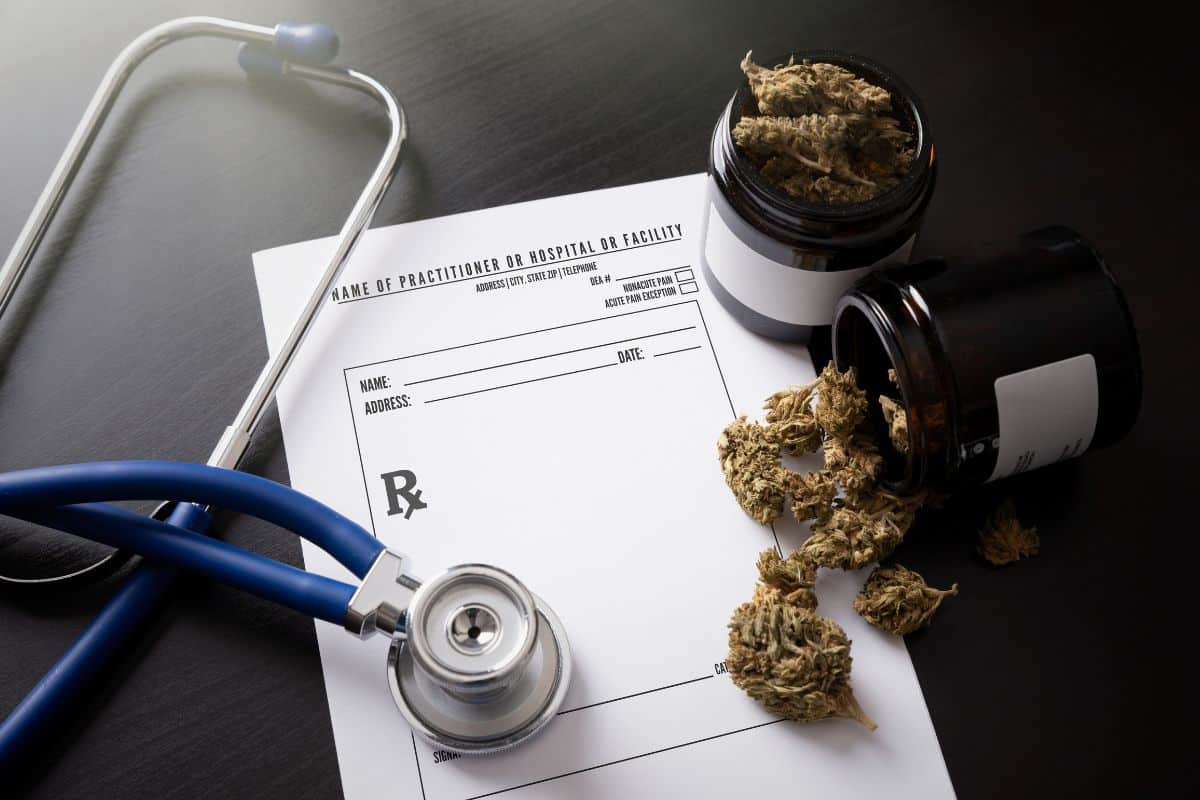
As research advances, you may find that THCa, a non-psychotropic cannabinoid found in raw and live cannabis, has a spectrum of potential medicinal applications. This section explores the scientific findings that underscore the potential therapeutic benefits for pain and inflammation management, nausea and appetite stimulation, and neuropsychiatric applications.
Pain and Inflammation Management
Research indicates THCa possesses anti-inflammatory properties, which may offer you pain relief in conditions like arthritis or MS. Its ability to modulate the immune system suggests a promising role in therapy for autoimmune diseases as well.
- Anti-Inflammatory: May reduce swelling and pain sensation.
- Pain Relief: Potential to ease chronic and acute pain.
Nausea and Appetite Stimulation
Studies have documented THCa’s anti-nausea properties, particularly relevant if you’re undergoing chemotherapy. It seems to help in treating symptoms like nausea and could aid in stimulating appetite, a common concern for patients undergoing cancer treatment.
- Anti-Nausea: Could control feelings of sickness and vomiting.
- Appetite Stimulant: Might encourage eating and weight stabilization.
Neuropsychiatric Applications
When considering neurodegenerative conditions like Parkinson’s disease, THCa shows promise in research for symptom management. Its potential therapeutic effects may extend to improving motor control and reducing tremors.
- Symptom Management: Might help control motor functions in Parkinson’s.
- Neuroprotective: Could protect nerve cells from damage.
While the current understanding of THCa’s therapeutic profile is growing, continued research is essential to fully uncover the breadth of its medical applications.
Effects of THCa on Mood and Mental Health

Exploring the influence of THCa on your mood and mental health reveals its complex role beyond the psychoactive effects linked to its cannabinoid cousin, THC.
Euphoric Versus Non-Intoxicating Effects
THCa, or tetrahydrocannabinolic acid, is a non-intoxicating cannabinoid found in raw and live cannabis. Unlike THC, THCa does not produce euphoric sensations as it doesn’t bind as effectively with your brain’s CB1 receptors. As a precursor to THC, THCa must be decarboxylated, typically through heat, to become psychoactive.
THCa and Anxiety
The link between THCa and anxiety management is nuanced. Research indicates that certain cannabinoids might wield anxiolytic properties. Investigations into terpenes coupled with cannabinoids for treating mood disorders have suggested that in conjunction, they may contribute to improved anxiety symptoms without the high of THC. However, specific studies on THCa’s effects on anxiety are still needed to draw decisive conclusions.
THCa in Depression Studies
Addressing depression with cannabinoids, including THCa, is a subject of emerging study. Some research points to the potential of cannabinoids to influence neurotransmitter systems involved in mood regulation. For instance, a study titled Taming THC: potential cannabis synergy and phytocannabinoid‐terpenoid entourage effects highlights that phytocannabinoids and terpenoids may act synergistically to impact the treatment-resistant depression. While the understanding of THCa’s precise role in such mechanisms is still developing, its non-psychoactive properties may offer alternative avenues for research and therapy in mental health.
Consuming THCa

When you consume THCa, it’s important to understand that this non-psychoactive cannabinoid is found in its raw form in cannabis and can be ingested in several ways, each with different potential effects on your body.
Methods of Consumption
- Raw Cannabis and Juicing: Consuming raw cannabis leaves and buds by incorporating them into salads or making smoothies offers you THCa in its natural state. Juicing cannabis is another way to ingest THCa and can be a method to integrate cannabinoids into your diet without experiencing intoxication.
- Edibles and Tinctures: You can also consume THCa through specially prepared edibles or tinctures. Although some edibles may be heated in preparation, those designated to maintain THCa will have been crafted to prevent decarboxylation.
- Vaping and Smoking: Vaporizing or smoking cannabis flower will cause the THCa to convert to THC through heat, which means you’ll likely experience psychoactive effects.
Raw Cannabis and Juicing
If you choose to consume raw cannabis leaves or buds, you’re getting THCa in its acid form. Integrating raw cannabis into your meals, such as in salads, or juicing it to create cannabinoid-rich beverages, ensures that you receive the benefits of raw THCa. Remember, juicing cannabis does not psychoactively affect you, allowing you to potentially benefit from THCa’s properties without intoxication.
Effects of Heat and Smoking
Exposure to heat through smoking or vaping initiates a chemical reaction known as decarboxylation, which converts THCa into THC, the compound known for its psychoactive effects. This means when you smoke or vape, you won’t be consuming THCa directly, but rather its intoxicating counterpart, THC. It’s crucial to understand this transformation if you’re aiming to experience specific effects or benefits associated with THCa itself.
Is THCa a Depressant?
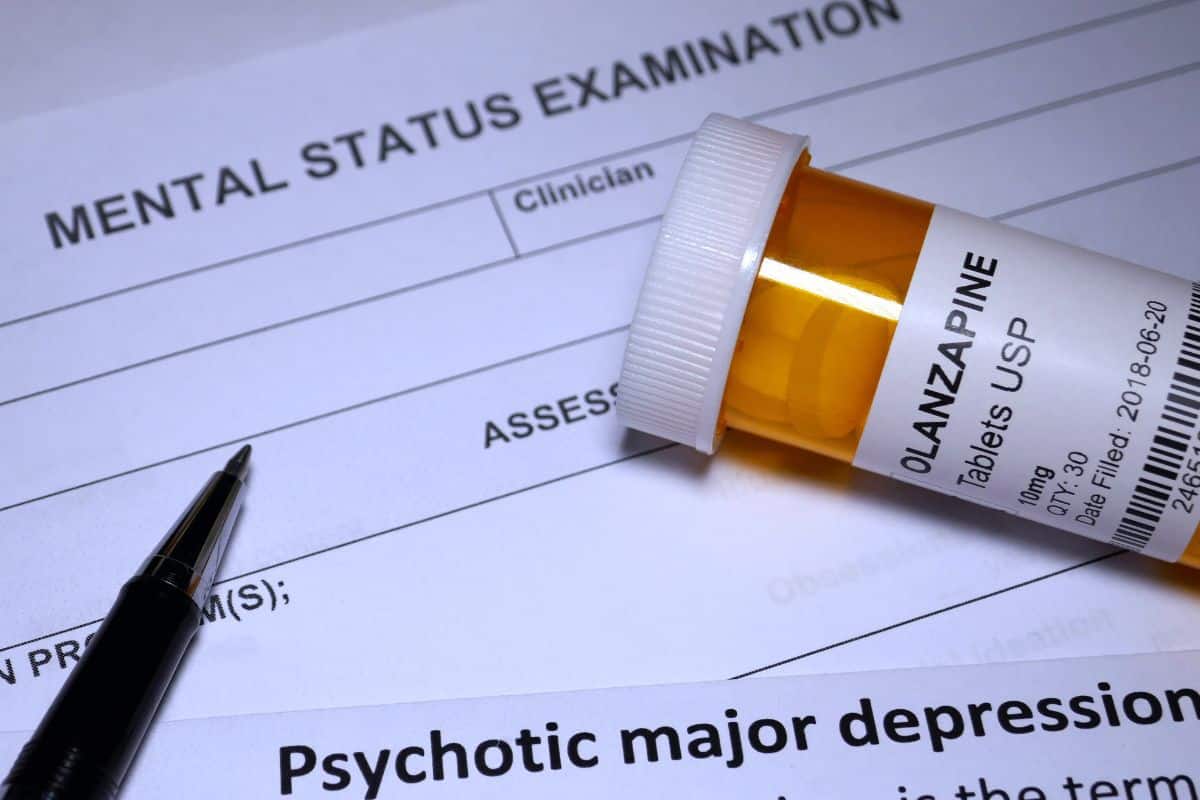
When exploring THCa, a non-psychoactive compound found in cannabis, it’s fundamental to understand its potential effects and whether it acts as a depressant.
Defining Depressants
Depressants are substances that slow down the function of the central nervous system. They typically induce a sense of calm and relaxation. Common depressants include alcohol, which may decrease anxiety and inhibit motor coordination.
Comparing Cannabis with Other Substances
Cannabis contains various compounds, including THCa (Tetrahydrocannabinolic acid), that is not psychoactive in its raw form. Unlike substances classified strictly as depressants, stimulants, or hallucinogens, cannabis can exhibit a combination of these effects. For example, while alcohol is a depressant, cannabis may induce relaxation similar to a depressant but can also have stimulating and hallucinogenic properties depending on the specific cannabinoid profile. THCa in its non-decarboxylated state does not produce the relaxed or calm effects associated with THC, the active psychoactive component that can have depressant-like effects after being heated or aged.
In summarizing the properties of THCa, while it is derived from the cannabis plant, it does not function as a depressant in its raw form. The transformation to THC, which occurs through decarboxylation, is necessary for the more sedative effects associated with cannabis use to emerge.
Side Effects and Risks
When considering THCa, or tetrahydrocannabinolic acid, it’s important to weigh the potential side effects and risks it may pose. While research on THCa is less extensive than THC, understanding its impact is crucial for your well-being.
Short-Term Effects
Paranoia and Confusion: Some users of cannabis products that contain THCa may experience short-term paranoia or confusion, which are common side effects associated with THC as well. This reaction varies depending on the individual’s physiology and the amount consumed.
- Dry Mouth: A common short-term effect of THCa consumption is dry mouth, also known as cottonmouth, which can be uncomfortable and is a temporary condition.
- Increased Heart Rate: You may notice an increase in your heart rate shortly after consuming products with THCa. This side effect is especially noteworthy for individuals with pre-existing heart conditions.
Long-Term Implications
The long-term risks associated with THCa are not well defined due to the scarcity of research. However, similar to THC, chronic use of THCa could lead to:
- Tolerance: You might develop a tolerance to the effects of THCa over time, potentially leading to increased consumption to achieve the same results.
- Dependence: With long-term use, there’s a risk of becoming dependent on cannabis products containing THCa, although further studies are required to understand the full spectrum of its long-term implications.
Legal Status and Research

In exploring the legal framework and current state of research, you’ll find both contrasts and constraints, especially when differentiating between THCa and THC, as well as understanding the legal and scientific challenges involved in studying these substances.
THCa Legality vs. THC
THCa, or tetrahydrocannabinolic acid, isn’t listed as a controlled substance and thus doesn’t carry the same legal weight as THC, the psychoactive component that produces the “high” in cannabis. However, because THCa can convert into Delta-9-THC when exposed to heat or light, its legal status remains complex and can vary depending on jurisdiction. While certain federal regulations might not directly address THCa, it is pertinent to stay informed as local laws may have specific clauses affecting its legality.
Research Limitations and Needs
There is a clear necessity for increased research support to fully elucidate THCa’s pharmacological properties, including any potential psychoactive effects and benefits. Legal hurdles, such as those detailed in regulatory issues governing cannabis, often impede this imperative work, especially research involving adolescents and other sensitive groups. These restrictions can stifle the capacity to understand the full scope of THCa’s impact, thereby limiting robust, evidence-based conclusions which could otherwise aid in crafting policy and healthcare advice.
Conclusion
When addressing whether tetrahydrocannabinolic acid (THCa) acts as a depressant, it’s important to consider the scientific community’s findings on this cannabinoid. THCa is a non-psychoactive precursor to delta-9-tetrahydrocannabinol (THC); upon decarboxylation, which involves heat, THCa converts into THC—the primary psychoactive compound in cannabis known for its depressant, stimulant, and hallucinogenic effects.
In your inquiry about the potential health benefits of THCa, while research is still evolving, preliminary studies suggest it might offer anti-inflammatory and neuroprotective properties. Remember, these health benefits do not equate to depressant effects, which typically slow down the central nervous system.
Regarding the risks, excessive consumption of THC, the active form of THCa, can lead to effects associated with depressants such as impaired motor function and anxiety. It’s crucial to understand that your body’s response to cannabinoids may vary widely based on individual physiology and dosage.
The legal status of THCa is complex, as it often falls under the umbrella of cannabis legislation. In many jurisdictions, THCa is legal when derived from hemp, which by definition contains less than 0.3% THC. However, the landscape is rapidly changing, and you should stay informed about local laws to navigate this area responsibly.
Use this information as a guide to better understand THCa, its potential impact, and the current standing in legal contexts. Stay abreast of ongoing research to fully grasp how THCa and its cannabinoid counterparts might fit into your health regimen or lifestyle, always keeping legal considerations and personal health at the forefront.
Frequently Asked Questions
When exploring THCa, a cannabinoid found in cannabis, you’ll uncover various effects and regulations. This section addresses your key questions regarding its impact on the brain, classification, and comparison to other compounds.
What effects does THCa have on the brain and cognitive function?
THCa does not produce psychoactive effects like THC because it does not bind to CB1 receptors in your brain. Research into THCa’s impact on cognitive function is ongoing, but it is not known to cause the “high” associated with THC.
How is THCa classified in terms of substance control regulations?
THCa is classified differently across jurisdictions. In some places, it’s regulated similarly to THC due to its potential to convert into THC, while in others, it may have a distinct classification unaligned with psychoactive cannabinoids.
Does the consumption of THCa lead to feelings of anxiety or relaxation?
THCa is reported to have non-psychoactive properties, which means it doesn’t induce anxiety or relaxation that would be associated with THC. Any feelings of anxiety or relaxation may derive from other compounds in the cannabis plant or individual psychological responses.
Can THCa be categorized as a stimulant, depressant, or hallucinogen?
THCa is not fittingly classified as a stimulant, depressant, or hallucinogen. Its non-psychoactive nature and lack of intoxication effects place it outside these traditional drug categories.
How does THCa compare to CBD in regards to its psychoactive properties?
Unlike THC, both THCa and CBD are non-psychoactive, meaning they don’t produce a high. However, while CBD has been studied for its potential therapeutic effects, THCa’s properties are less understood, requiring more research for conclusive comparisons.
What should be understood about THCa’s role within the psychoactive drug category?
THCa does not fit neatly within the psychoactive drug category as it doesn’t produce mind-altering effects. It’s crucial to distinguish between THCa and THC, the latter of which is responsible for the psychoactive effects commonly associated with cannabis.

